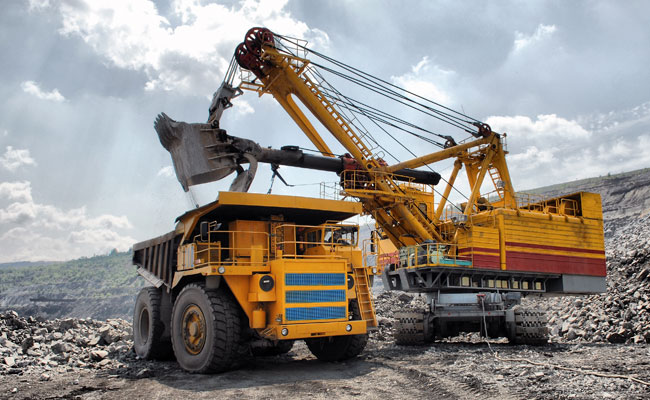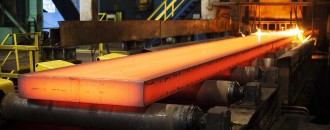
Government intervention turns concern for mining industry
Sai Nikesh | The Dollar Business
The year 2014 was a tough fight for the global mining industry with commodity prices down, short-term volatility increasing and initial scorecard for the top 40 global mining companies was mixed, said a PricewaterhouseCoopers’ (PwC) review report on global trends in the mining industry- Mine 2015. Now, the gloves are off for the mining industry with widespread government intervention, internal industry conflicts and rising shareholder activism, noted the report. Responding to above statement in the Indian context, Basant Poddar, Vice-president of Federation of Indian Mineral Industries (FIMI), MD, Mineral Enterprises Ltd., told The Dollar Business that ‘mining industry in India is facing severe challenges due to higher political intervention’. To a question on ‘whether government policies are offering favourable environment for miners,’ he said, “In the past, Iron- Ore Mining Industry in India, particularly in Karnataka has been plagued with political influence which left to rampant illegal mining, aftershocks of which was felt in other State of India as well.” Though the Supreme Court has lifted the ban for Iron Ore mining in Karnataka in 2012, out of 116 ‘A’ & ‘B’ eligible mines, only 22 have re-started, he added. He further informed that M/s Kudremukh Iron Ore Company Ltd in Mangalore, Karnataka is buying Iron Ore from Madhya Pradesh (NMDC, Bailadulla)- Railing it to Vizag Port, unloading, loading then shipping it to Mangalore, all the way around Sri Lanka.’ Similarly, Visweswarayya Iron and Steel Plant of Steel Authority of India Limited (SAIL) in Badravathi, Karnataka, is moving Iron Ore by rakes from nearly 2000 Kms. All these are happening when Iron Ores (for both the said industries) are available within 300-400 Kms range in the State and these activities are a travesty of commercial, environmental aspects and a hugely ‘carbon negative’. And, reopening of mining leases are getting delayed due to bureaucracy justifiably not feeling confident in approving files which might form part of investigations in future, he noted. “India should impose anti-dumping duties on consignments from overseas,” he said further, when sought opinion on the government’s recent move over ‘imposing of anti-dumping measures on steel consignments from countries like China, Thailand, among others’. On the role of private players in mining industry, he said, “Private sector will play a very important role, not only in the Mining Industry, but also in exploration.” As per the analysis by the largest 40 miners from PwC, the mining industry trimmed spending and largely managed expectations through higher production and unexpected help from currency devaluations and lower input costs, despite continuing challenges from weak commodity prices. While the mining industry has been indicating intention to reduce capital spending for the last two years, such reductions were actually realised in 2014 as expenditures on significant projects declined 20%, noted the report. A key measure of the industry’s investment agenda, capital velocity, slowed to just over 12% with further decreases expected in 2015. According to the report, a decrease in commodity prices across various commodities which resulted in lower revenues was partially offset by increased volumes, particularly in iron ore where supply expanded as a result of large expansion programs. A decline in iron-ore prices as a result of oversupply has significant impact on top 40 miners, said the report, adding, ‘market trends and demand supply result in miners operating on the assumption that ‘low commodity prices would continue driving further focus on containing of operational costs and maintaining capital accountability’. According to the report, majority of the largest mining companies coming from BRICS countries tend to focus on mining in emerging markets exclusively and those in the Organisation for Economic Co-operation and Development (OECD) tend to have more diverse global portfolios.
June 15, 2015 | 6:42 pm IST.





 to success.
to success.